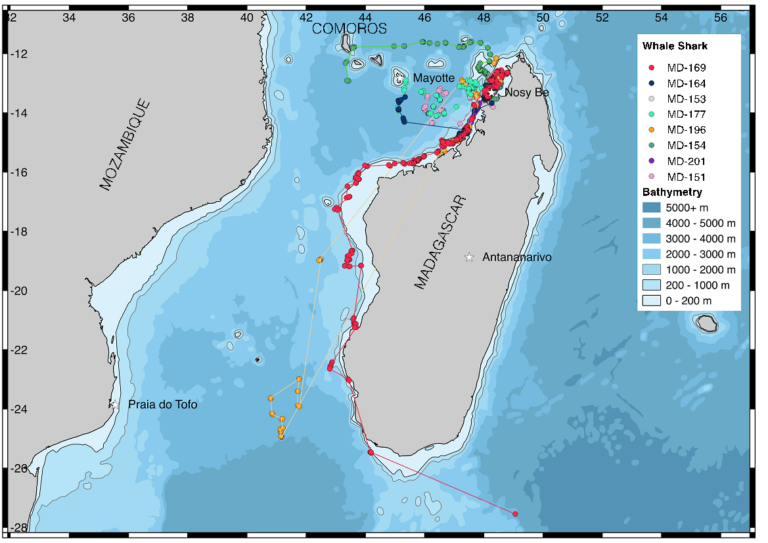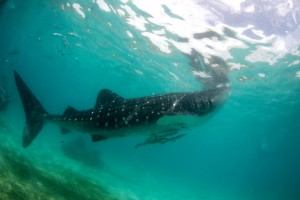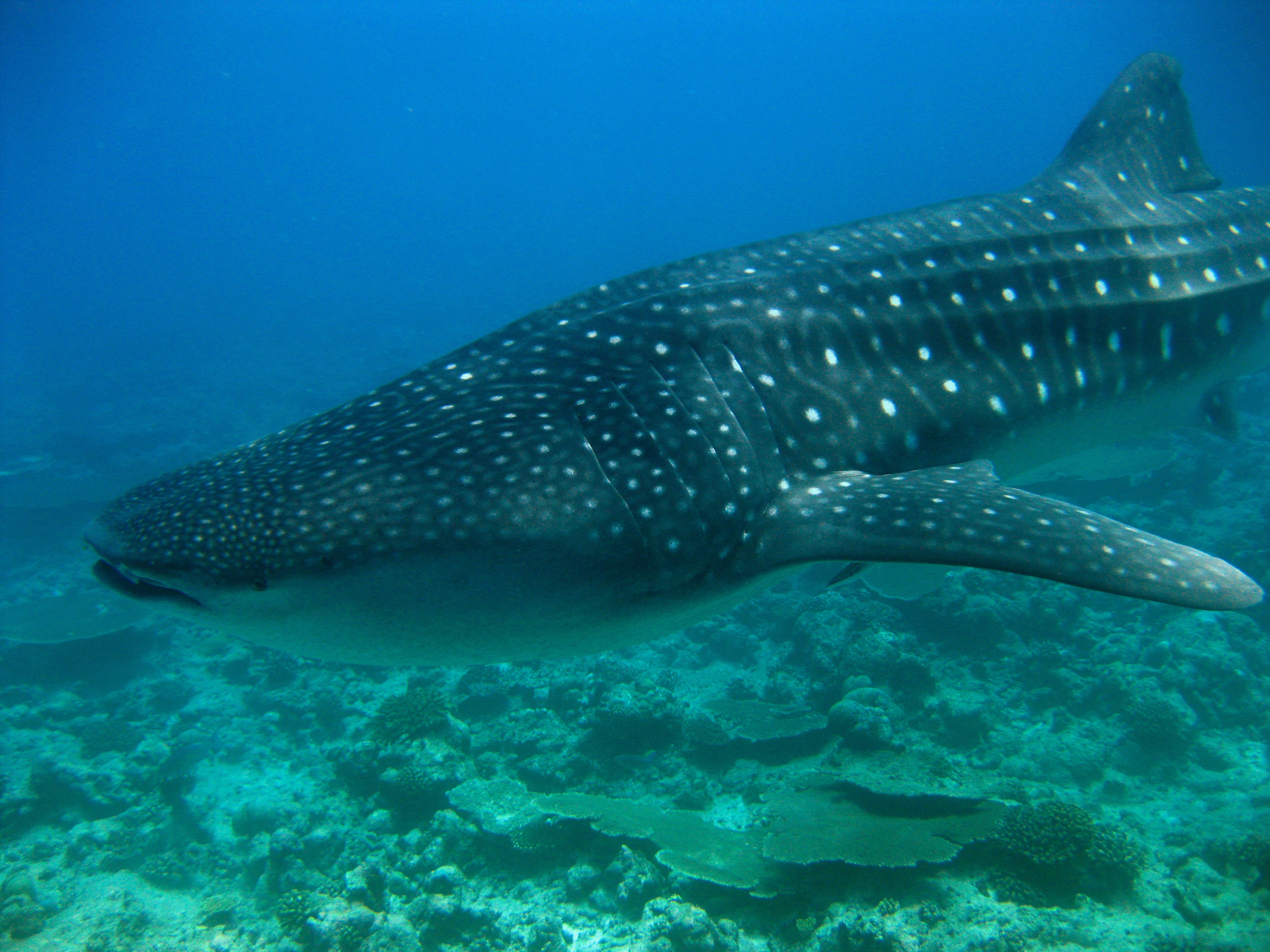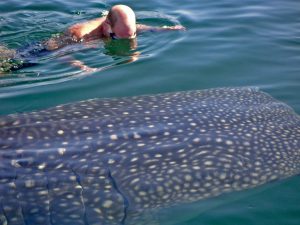ANTANANARIVO (MADAGASCAR)-The isolated island continent of Madagascar is a hotspot for whale sharks. This was confirmed by a new study published in the journal Endangered Species Research this summer.
It revealed that juvenile whale sharks swim to Madagascar to feed. 85 individual sharks were identified in a single season using photographs of their distinctive spot patterns.
Nutrient-rich waters
An isolated ‘island continent’, famed for animals and plants that exist nowhere else in the world, Madagascar’s nutrient-rich waters are also home to an incredible array of marine life attracting increasing numbers of tourists.
 Whale sharks are primarily seen around the small island of Nosy Be, in northwest Madagascar. This area is a globally important hotspot for large marine species, including manta rays, sea turtles, humpback whales and even rare Omura’s whales.
Whale sharks are primarily seen around the small island of Nosy Be, in northwest Madagascar. This area is a globally important hotspot for large marine species, including manta rays, sea turtles, humpback whales and even rare Omura’s whales.
Madagascar Whale Shark Project
The study is part of the Madagascar Whale Shark Project, a collaboration initiated in 2016 by researchers from the Marine Megafauna Foundation, Florida International University, and Mada Megafauna.
Lead author and project leader Stella Diamant said in a press release: “We’ve found that whale sharks regularly visit Nosy Be between September and December. That has led to a growing ecotourism industry, as people travel to see and swim with these gigantic, harmless sharks. We’re still learning about their population structure and movement patterns, but it’s clear the area is an important hotspot for the species.”
Largest fish in the world
Whale sharks are the largest fish in the world, growing up to 20 meters long. However, all of the sharks seen in Madagascar have been juveniles of less than nine meters.
“We identified 85 individual whale sharks over our first season in 2016. Some of the sharks were present across several months. They spend a lot of time in the area and seem to come here to feed,” Diamant said.
The marine biologists uploaded photographs of the sharks’ unique spot patterns to Wildbook for Whale Sharks (a global database of sightings) and compared them with data collected from known feeding areas in the Indian Ocean, including Djibouti, the Maldives, Mozambique, Seychelles and Tanzania, but found no overlap.

“Whale sharks are a globally endangered species due to overfishing, accidental catches and boat strikes. Major declines in sightings have been seen in Mozambique, where we’ve documented a 79% decline in sightings since 2005, and the Seychelles. I was hoping that some of those sharks might have shifted over to Madagascar”, said co-author Dr Simon Pierce, co-founder and principal scientist at the Marine Megafauna Foundation.
“Unfortunately, that doesn’t seem to be the case. It’s great news for Madagascar though. These sharks can be a major asset for the country. There’s already a good marine ecotourism industry developing”, he added.
Read more at the Madagascar Whaleshark Project.


